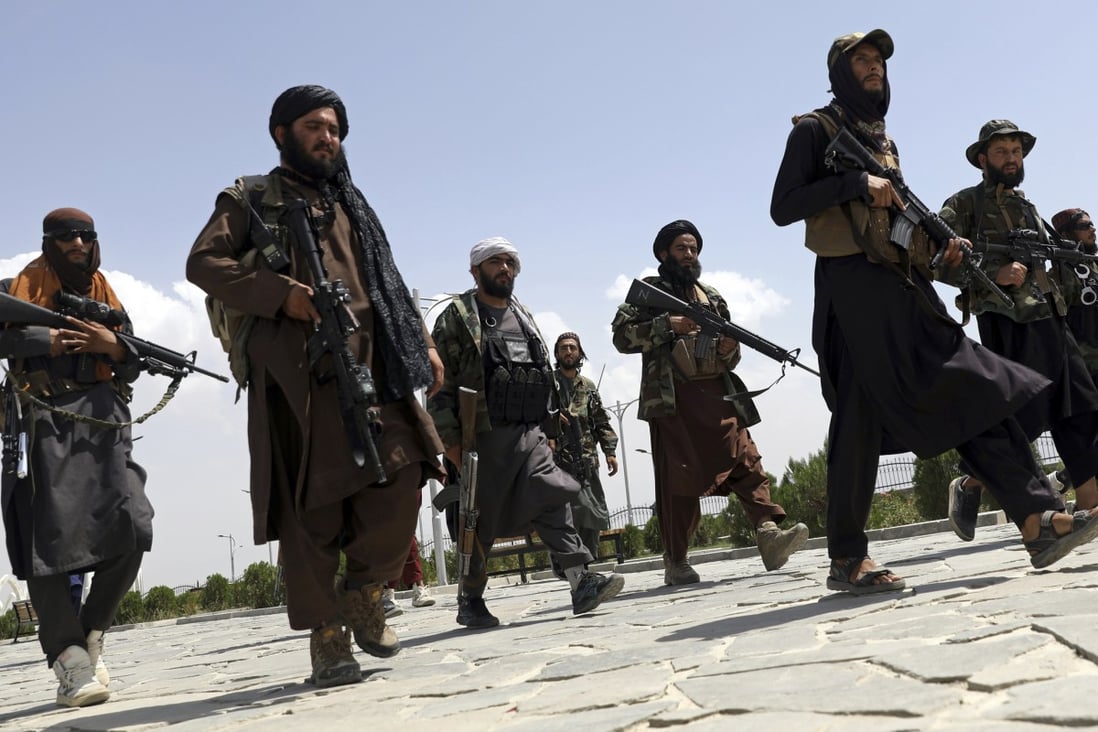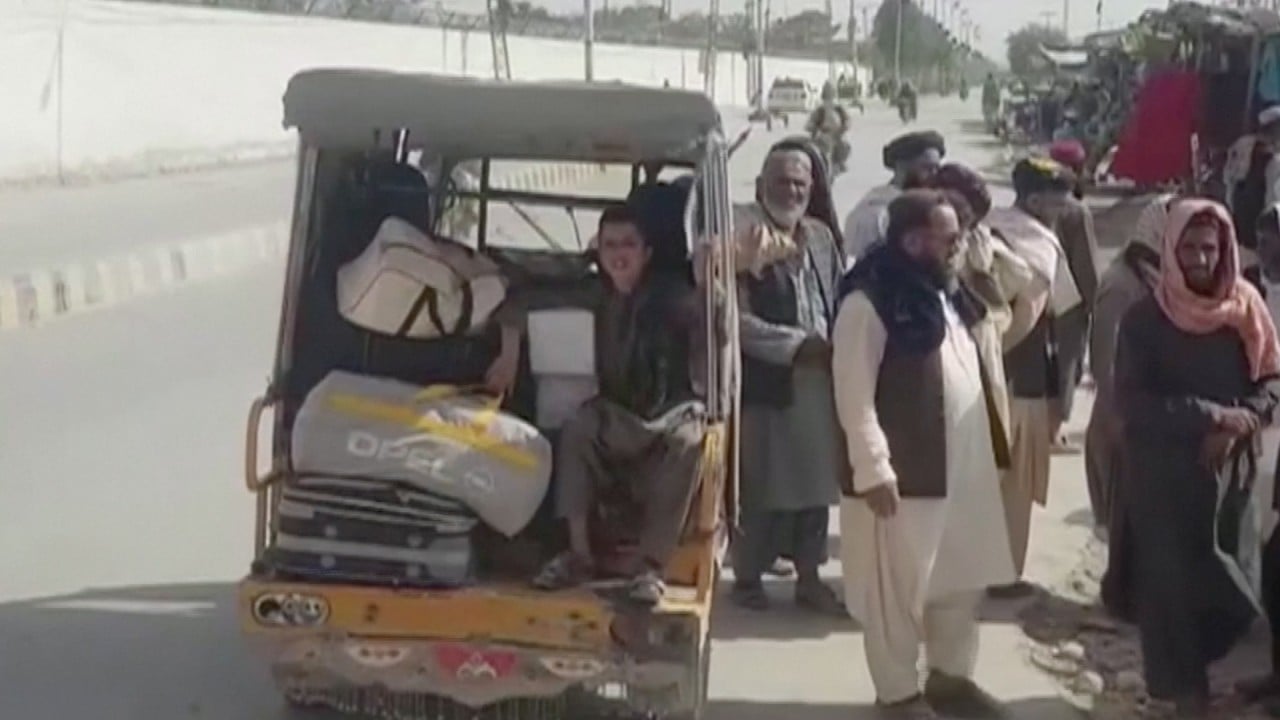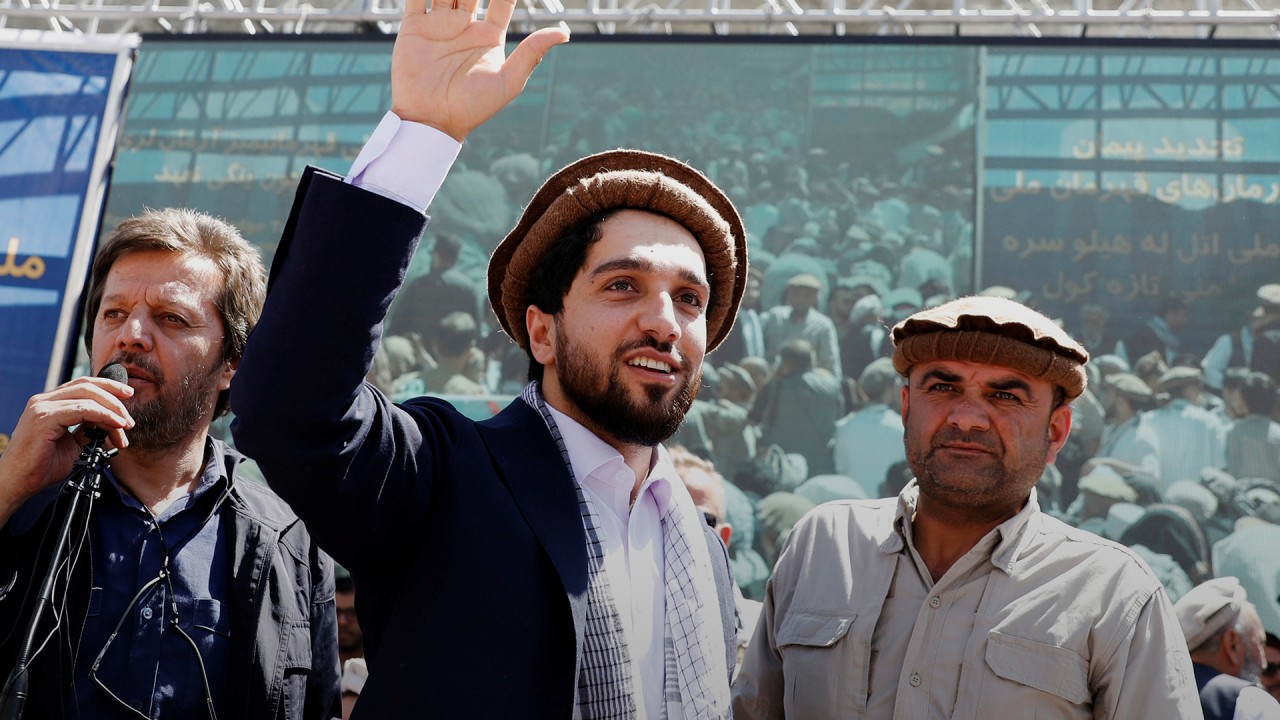https://www.scmp.com/comment/opinion/article/3146309/why-talibans-return-power-puts-onus-afghanistans-neighbours-step
The Taliban’s capture of Kabul puts the two-decade-old Shanghai Cooperation Organisation (SCO) on the spot. The eight-member body brings together all relevant regional parties, including four nuclear powers, that have a huge stake in the stability of Afghanistan.
China, Russia, India and Pakistan are members of the SCO, while Iran
. All of save for Turkmenistan are part of the grouping, and even Afghanistan itself is an observer. Thus, the US-led coalition’s exit from the Afghanistan quagmire raises expectations for the SCO to step up.The Taliban offensive weeks ahead of
for the United States and other Western troops to withdraw from one of their longest and costliest engagements shocked many. The Afghan national army, which took coalition forces 20 years to build, train and equip, unravelled in weeks.The evacuation of Western civilians, diplomats and soldiers drew striking parallels to the 1975 fall of Saigon that ended nearly two decades of brutal fighting in the Vietnam war.
In the region and beyond, the return to power of the militant Taliban movement evoked fears of potential adverse spillovers. Instability in Afghanistan has drawn regional countries together.
Last month, SCO foreign ministers met in Tajikistan’s capital, Dushanbe, to discuss the situation in Afghanistan. This month, Russia, Uzbekistan and Tajikistan held joint military exercises near the Afghan border. China and Russia also conducted
in Ningxia.Concern about developments in a land known as the “
” runs deep. The SCO’s forerunner, the Shanghai Five, was made up of China, Russia, Kazakhstan, Kyrgyzstan and Tajikistan. It came into being during the Afghan civil war five months before the Taliban seized Kabul in September 1996.Although the Taliban is dominated by Pashtuns, the largest ethnic group in Afghanistan, it also draws foreign fighters from the Middle East and North Africa, Central and South Asia and beyond. This has stoked fears of the spread of
that could endanger regime security in neighbouring countries.As such, combating the so-called
of terrorism, separatism and extremism has been at the heart of the SCO. The grouping has set up a regional anti-terror office in Uzbekistan’s capital, Tashkent, to promote cooperation in the fight.A Taliban-run Afghanistan that provides inspiration, refuge, training grounds, financing, advisers and hardened fighters to extremist groups elsewhere will be a threat to the region as well as the rest of the world.
China has reason to worry about the possible
. Russia is worried about Chechnya and the rest of the North Caucasus, as is India with its millions of .While regional countries might come to accept – even reluctantly and with much reservation – a Taliban-dominated government in Kabul, their sense of insecurity will not dissipate. If the Taliban of today has not grown
and instead remains as hardline as its predecessors before the US-led invasion in 2001, then being anxious is warranted.In addition, the variance between the statements given by Taliban leaders and their negotiators in Doha, Qatar, and the actions taken by their commanders on the ground exposes the unwieldy and fragmented side of the insurgents.
Infighting cannot be ruled out as family, clan and tribal loyalties remain deeply ingrained, not to mention the divided ethnic identities. Neighbouring countries also fear getting sucked into the strife as Afghanistan’s ethnic minorities that have traditionally opposed the Taliban have kin
.For instance, the United Front and
that fought the Taliban in the late 1990s to early 2000s were mostly made up of ethnic Tajiks and Uzbeks. These include notable resistance leaders such as the late Ahmad Shah Massoud, a Tajik, and Abdul Rashid Dostum, an Uzbek.Despite the resources and influence they can bring to bear to shape developments in Afghanistan, historical baggage and mistrust could hamper SCO member’s efforts to shape a common agenda. From the Cold War to the “war on terror”, Afghanistan has been a theatre for proxy wars with neighbours and other countries picking sides to suit their ends.
Pakistan has
while Russia, the Central Asian republics, Iran have aided various anti-Taliban outfits. Leaving the past behind will be key to forming a coherent approach to the unfolding crisis.The Afghanistan debacle presents an opportunity for the SCO to play a constructive role in meeting the region’s burgeoning security challenge. Providing humanitarian relief, tending to refugees, facilitating an inclusive dialogue and national reconciliation constitute immediate and long-term goals in which the organisation can fill a role.
In conjunction with the international community, the SCO can
to share power with other domestic actors and refrain from providing sanctuary to foreign terror organisations. It can suspend Afghanistan’s observer status, curtail border traffic or withhold recognition, investments and aid, should Kabul be found wanting. Getting everyone on board will strengthen the SCO’s hand.The withdrawal of the West puts the onus on Afghanistan’s neighbours to step up. Can they rise to the occasion?
Lucio Blanco Pitlo III is a research fellow at the Asia-Pacific Pathways to Progress Foundation




Comments